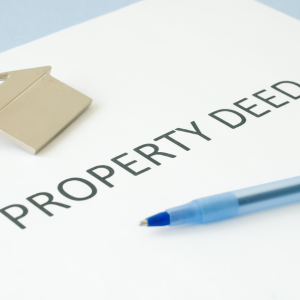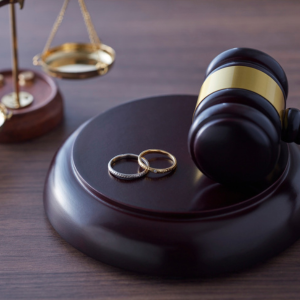
Changing a Name on a Property Deed in Los Angeles, CA
In Los Angeles, changing the name on a property deed can seem hard, but it’s not too hard if you follow the right steps. Whether you’re getting married, getting divorced, or selling your home, it’s important that your deed has all the right information. Updating property records not only keeps things clear, but it also protects your legal rights as an owner. This guide will show you the steps, what you need to do, what paperwork you’ll need, and what to expect, so you can feel confident as you move forward.
Key Highlights
- Property deeds are key documents that record ownership and allow for smooth title transfers in Los Angeles.
- Changes often follow life events like marriage, divorce, or inheritance, ensuring ownership stays accurate.
- Quitclaim deeds are often used for simple, quick transfers, especially within families or during divorce.
- Filing with the Los Angeles County Recorder keeps ownership official and legally recognized.
- California’s property laws influence ownership rights, transactions, and potential disputes.
Understanding the Basics of Property Deeds
Property deeds are very important in real estate deals because they show who owns a property and how ownership changes hands. It’s important to understand these papers whether you’re buying a house in Los Angeles or changing the name on a mortgage. This part talks about what deeds are used for and the different kinds, like quitclaim deeds and others. You’ll be better able to follow California’s real estate rules once you know these basics.
What is a Property Deed?

A property deed is a legal document that proves ownership and allows property titles to be transferred from one party to another. This paperwork isn’t just routine; it establishes who has the legal right to control or sell the property. Each deed includes details like the grantor and grantee names, property description, and required signatures.
Even though a document proves that ownership has changed hands, it doesn’t always mean that there are no problems with the title. This is where title insurance comes in handy. In Los Angeles, titles are filed with the County Recorder to become public records. This makes sure that the records are correct and easy to find.
Different situations call for different deeds. For example, a quitclaim deed doesn’t promise clear ownership but quickly transfers whatever interest the grantor holds. These are often used in family transactions, divorces, or estate planning. In short, a deed is much more than paperwork—it’s the legal backbone of property ownership in California.
Different Types of Deeds
Not all deeds are the same. Each type has a specific role depending on the transaction. The most common are warranty deeds, quitclaim deeds, and grant deeds.
- Warranty deeds give the strongest protection to buyers, guaranteeing that the title is clear of any debts or claims.
- Quitclaim deeds are simple transfers that offer no promises about title status. They’re common in family transactions, divorces, or estate matters where trust already exists.
- Grant deeds are in the middle. They make sure that the land hasn’t been sold to someone else and doesn’t have any hidden liens, but they don’t give as many guarantees as a warranty deed.
Choosing the right deed is crucial. For example, real estate lawyers in Los Angeles often help their clients choose the best choice. Knowing the right kind of deed can greatly impact personal rights, so getting expert help is a good idea. Understanding these types of deeds will help you keep your investment safe and avoid problems.
Why Change a Name on a Deed?
Changing a name on a property deed is usually the result of major life events or shifts in how ownership is structured. In Los Angeles, where real estate plays such an important role in personal and financial planning, these updates are not just recommended — they are often legally necessary.
A common reason is getting married. Property may need to be changed to show that it is owned by both people after a marriage. Adding a spouse’s name to the deed makes it official that the land is owned by both of them. This can speed up the probate process and protect the rights of the remaining spouse if one partner dies.
On the other hand, divorce requires names to be removed. During the division of property, updating deeds clarifies who is legally responsible and avoids lingering disputes. Without this adjustment, both parties could remain tied to a property long after separation.
Deed changes are also often caused by inheritance. To be clear from a legal point of view, when control changes hands, the deed must show this. Taking out the name of a dead person and adding the name of an heir makes sure that ownership rights are shown in public records, which is very important for managing an estate.
Many property owners also use trusts. Transferring real estate into a trust requires updating the deed, showing the trust as the new owner. This reduces probate costs, streamlines asset distribution, and often lowers tax liability. Similarly, business entities may update deeds during mergers or restructuring to match their new legal identity.
Sometimes, property changes stem from resolving disputes. Issues like ownership disagreements or unclear historical records may require legal action, after which the deed must be updated to reflect the rightful owner.
No matter the situation, ensuring deeds accurately reflect ownership is essential. It safeguards property rights, helps prevent future disputes, and ensures compliance with California property laws. In a city as dynamic and complex as Los Angeles, keeping deeds current provides both legal protection and long-term peace of mind. And for homeowners looking for a simple solution, we buy houses in Los Angeles, offering a stress-free way to move forward.
The Role of Quitclaim Deeds

Quitclaim deeds are one of the most frequently used tools in Los Angeles when it comes to updating property ownership records. Their biggest advantage is their simplicity. Unlike other types of deeds, they don’t make guarantees about the title’s status. Instead, they simply transfer whatever interest the grantor has to the grantee.
In settings where people already trust each other, this makes them very useful. In family transactions, parents may use quitclaim deeds to give property to their children, or siblings may use them to split up property they received without having to do a lot of work with the title.
Quitclaim deeds also play a major role in divorce proceedings. When one spouse gives up rights to a jointly owned property, a quitclaim deed provides a fast way to remove their name from the deed. This ensures that ownership records align with divorce agreements and prevents confusion later.
They are also often used in wills and estate planning. A quitclaim deed helps quickly change ownership of property into the trust’s name after it is put into a trust, so there is no need for probate. This works out better because it saves time and money for the children in the future.
Businesses also turn to quitclaim deeds during restructures or mergers. For instance, transferring property between parent companies and subsidiaries can be done efficiently with this method.
There are no guarantees with quitclaim deeds, though, so both sides must be okay with the risks. There’s no guarantee that there are no liens or claims on the title. Because of this, a lot of people talk to a real estate lawyer before they use one to make sure it fits their needs and follows California law.
In Los Angeles’s fast-moving real estate market, quitclaim deeds are a valuable tool. When used properly, they provide speed, flexibility, and a straightforward way to keep ownership records up to date.
Steps to Remove a Name from a Deed in Los Angeles
In Los Angeles, taking someone’s name off of a property lease is mostly done by getting the right paperwork together and submitting it to the County Recorder. It’s important to follow these steps exactly so the change is legal and effective.
Preparing the Necessary Documentation
In the first step, you need to get a copy of the current property from the office of the Los Angeles County Recorder. This paper is what the update is legally based on. Then you’ll need to make a new deed, usually a quitclaim deed, that shows who now owns the property.
It’s highly recommended to have a real estate attorney prepare or review this new deed. They’ll make sure all the legal descriptions are accurate, the right signatures are included, and the deed complies with California property law.
Notarization is essential. All parties must sign the deed in front of a notary to validate the change. In addition, a statement of information may be required to confirm the identities of the people involved. This step helps the Recorder’s office accurately match ownership records.
You should also think about the tax effects. Taking someone’s name off a deed may lead to a new property tax bill or other financial problems. Talking to a tax expert before you file can help you avoid unpleasant shocks later.
Filing with the County Recorder
After getting all the information together, the next step is to file at the Los Angeles County Recorder’s office. This is the official place where the new property goes.
You will send the notarized deed, any supporting papers, and the fees that are due. The Recorder checks everything to make sure it’s right. If mistakes are discovered, like wrong descriptions or missing signatures, the property could be thrown out, which would slow down the process.
The Recorder will issue a receipt confirming that the property has been recorded, provided it is accepted. This receipt includes a unique number and a date stamp, verifying the update.
However, complications may arise—such as unpaid property taxes or existing liens—that must be cleared before the Recorder can finalize the change. Working with a legal professional helps ensure these obstacles don’t delay the process, which is especially important if you’re looking to sell your house fast in California.
Once all steps are completed, the previous name will be removed, and public records will accurately reflect the new ownership. This provides legal clarity, protects the property’s value, and helps prevent future disputes.
Legal Considerations in Property Law

Navigating property law in Los Angeles requires close attention to detail. Local rules affect everything from ownership disputes to estate planning, and failing to follow them correctly can create long-term problems. Understanding these legal frameworks ensures compliance and protects ownership rights.
Getting a will is a key area. When an owner dies, bankruptcy decides what should happen to their property. This process can get long, expensive, and controversial without up-to-date deeds. Clear, correct records of property help keep inheritance problems to a minimum.
Disputes over who owns something are another regular problem. Arguments can happen when people have different claims to the same land, when documents aren’t clear, or when mistakes are found in old records. Property law gives people ways to settle their differences, but they usually involve going to court or negotiating a deal. Keeping deeds current reduces the risk of disputes.
Recording requirements also play a big role. In California, any transfer or update to ownership must be properly filed with the County Recorder. Without recording, even a signed deed may not hold up legally, leaving ownership uncertain.
Ownership structures like joint tenancy or tenancy in common also carry legal implications. These arrangements determine how property rights are shared and what happens when an owner dies or decides to transfer their share. Understanding these distinctions is critical before making deed changes.
Taxes are another important factor. Updating a deed can sometimes trigger property tax reassessments or even capital gains liabilities. Property owners should be aware of these consequences to avoid unexpected financial burdens.
Because Los Angeles’s property rules are so complicated, many owners hire lawyers to help them. Lawyers make sure that deals follow California’s rules, settle disagreements quickly, and protect clients from secret risks.
In short, local property laws touch every part of ownership. From protecting rights during disputes to managing estates and taxes, they provide the framework that ensures property transactions are fair and secure. By respecting these rules, owners can protect their investments and maintain peace of mind.
In Los Angeles, updating a property lease isn’t just routine paperwork—it’s a key step to protect your rights and keep ownership records accurate. Preparing the right documents, working with experienced real estate professionals, and filing correctly with the County Recorder ensures the process goes smoothly. Clear records confirm ownership, safeguard your investment, and help you avoid legal issues down the road.
And if the paperwork feels overwhelming or the property isn’t in perfect shape, remember that Eazy House Sale buys houses in all conditions. Talk to us today and explore a simpler path forward.
FAQs
How do I change a name on a property deed in Los Angeles?
You’ll need to prepare the correct deed form, gather supporting documents, and file with the Los Angeles County Recorder. A real estate attorney can help ensure everything meets legal requirements.
What are the types of deeds used for property transfers?
The main types are warranty deeds, quitclaim deeds, and grant deeds, each offering different levels of protection depending on the situation.
When should I use a quitclaim deed?
A quitclaim deed works best for simple transfers where title guarantees aren’t necessary, such as family transfers or divorce settlements.
What legal requirements exist for changing a deed in Los Angeles?
You must draft the right deed, notarize all signatures, and file with the County Recorder to make the change official.
How does marital status affect property deeds?
Marriage or divorce often requires updating deeds to reflect new ownership structures, especially under California’s community property laws.
Helpful Los Angeles Blogs
- Remove A Name From A Deed in Los Angeles, CA
- How Do I Know If There Is A Lien On My Property in Los Angeles, CA
- How Much is Home Staging Cost in Los Angeles, CA
- How to Choose a Title Company in Los Angeles, CA
- Switching Real Estate Agents In Los Angeles, CA
- Selling a Flood-Damaged Home in Los Angeles, CA
- How Long Can You Go Without Paying Your Property Taxes in Los Angeles, CA
- Is Los Angeles, CA Safe?

